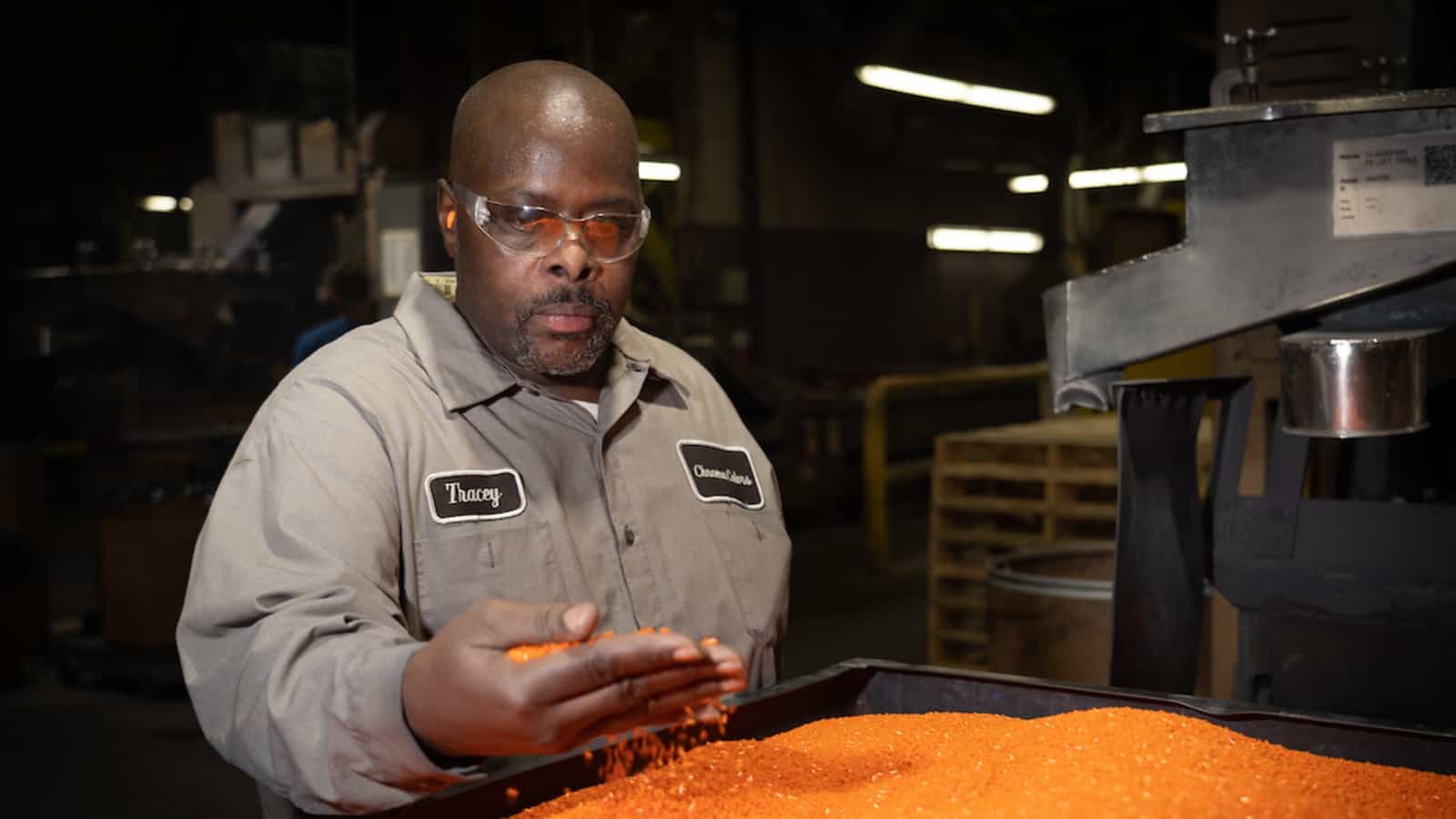Chroma Color Corp. Sees Big Reward in Second Chance Investment

Manufacturers seeking smart, loyal, hard-working employees who are in it for the long haul need to be scouring online career sites and hitting the college job-fair scene with gusto—or do they? Chroma Color Corporation Vice Chairman Matt Barr would say no.
Unusual staff source: Chroma Color Corporation, a 55-year-old specialty color concentrate supplier with facilities in North Carolina, New Jersey, Massachusetts, Illinois and Ohio, has been recruiting talent from a minimum-security prison for more than three decades.
- “For many years, we had a great pipeline” of workers from the Piedmont Correctional Institution in Salisbury, North Carolina, Barr said. “While the program ended with COVID, we’ve decided to rebuild it now that COVID has subsided.”
Staying power: Amid a pan-industry skilled-labor shortage and unprecedentedly high job turnover, Chroma Color hopes for some relief in the form of more second chance employees, who come to the company through a partnership with the North Carolina Department of Public Safety.
- Of the hundreds of second chance individuals who have found jobs at the company since 1990, 90% are still there or have since retired, Barr said. And 100% of those who came on full time have stayed out of the corrections system.
- “We don’t have a lot of turnover,” Barr said. The second chance employees “are very smart and they’re passionate about turning their lives around. People don’t give them enough credit.”
Making the most of an opportunity: Barr attributes much of the low recidivism and turnover to the company’s policy of paying good wages and ensuring that workers have support systems in place.
- The program’s workers “have mentors, so they have contact with people who have gotten out,” Barr said. “They’ve got a model to look at on how to make it work.”
Successes: Stories of second chance employees who have risen among the ranks at Chroma Color and changed their lives completely are many.
- One employee, now the Salisbury plant manager, “did seven years for armed robbery,” Barr said. The man now oversees 25 employees and makes hiring decisions.
- Another second chance staff member, who has been with the company for 17 years, was able to purchase a house just six months after completing his prison sentence. “That doesn’t happen without something like this,” Barr said of the company’s program.
Advice for other manufacturers: Barr, who says the competition for second chance workers is heating up as other companies start to see the state corrections system as potential hiring grounds, thinks more manufacturers would do well to embrace second chance hiring—but only for the right reasons.
- “It’s not cheaper at all, but what you get is a unique workforce that’s dedicated and thankful and devoted and anxious to learn,” he said. “You need to go into it with your heart in the right place and have a genuine appreciation of people. We’ve all made mistakes. [Second chance employees’] mistakes were just a little more costly.”
